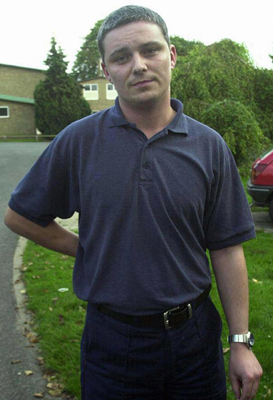Savile failings raise concerns over police database
As a report warns that police could still repeat the errors of the Jimmy Savile case, have the authorities failed to act on the lessons of the 2002 Soham murders?
A report by Her Majesty’s Inspectorate of Constabulary (HMIC) into the Savile case has raised concerns over how information is shared by police forces.
It found the three forces in the Savile investigation failed to “join the dots” and spot patterns despite having systems available to them, raising fears the mistakes could be repeated. Decisions to categorise allegations against Savile as “sensitive” prevented other investigators from finding it.

Police National Database
The sharing of information between police forces was a key focus of the inquiry that looked into the 2002 Soham murders of two girls by their school caretaker Ian Huntley (pictured). During Huntley’s trial it was revealed he had previously been investigated for sexual offences, but police investigating the murder took nearly two weeks to uncover previous sexual allegations against him.
In the aftermath of the Soham case the Bichard inquiry looked into failures in police intelligence and called for the introduction of a national police intelligence system for England and Wales and a code of practice for all police forces data sharing to ensure the situation never happened again.
There is a distinct possibility that such failures could be repeated
HMIC report
The 2004 Bichard report highlighted “poorly informed decision making” from police forces and criticised failure to share information across the country.
As a result the £75million Police National Database was introduced in 2011, it contains 1.8 billion records created by police forces and was designed to overcome the “disparate development” of local IT systems which do not communicate with each other.
But on Tuesday the Chief Constable of Greater Manchester police Sir Peter Fahy conceded that problems remained, despite the database. “It has to be acknowledged that having 43 separate police forces in England and Wales and no national headquarters for policing makes achieving consistent national standards all the more difficult,” he said in a statement.
Sir Peter also pointed out that there is genuine public concern over police keeping records of unsubstantiated allegations particularly those relating to sexual offending, and that to protect civil liberties such information has recently been removed from police databases.
Failure of management
The HMIC report found that Surrey police investigating Savile from 2007 to 2009 were found to be unable to access Metropolitan police intelligence, and failed to inform three victims who had come forward they were not alone. Only three forces held any information on Savile.
The report conceded that police systems do work as intended when the proper guidance is followed but raises concerns over police information management and the records contained in their database. It warns “there is a distinct possibility that such failures could be repeated”.
HMIC will test the system’s effectiveness under its wider Child Sexual Abuse and Sexual Exploitation Review.
Improvements since Soham
Chief Constable of Durham, Mike Barton, who speaks on intelligence for the Association of Chief Police Officers, disagrees with HMIC about shortcomings in information sharing.
He told the BBC Radio 4 Today programme; “I am confident now that, if there were allegations anywhere in the country and there were simultaneous allegations elsewhere, we could connect those dots.”
“In terms of intelligence we have come on leaps and bounds as a result of the Bichard Inquiry and I’m really satisfied that we have made significant progress.”Mr Barton later told Sky News; “We found that at pretty much the touch of a button everything which was uploaded on police data systems about Savile was found straight away.”
Unfollowed Savile leads
The report reveals how in 1963 a Cheshire man made an allegation of rape to police but was told to "move on" and "forget about it", no report was made of the allegation. In the same year a man attended Vine Street police station to report his girlfriend was assult at a recording of Top of the Pops, he was told he could be arrested for his allegations, again no report was taken.
Six former policemen made reports to Operation Yewtree, two had served with Savile's local force, West Yorkshire police. Concerns are raised that police held no reports about Savile from this area as more than 40 people in West Yorkshire came forward to Operation Yewtree.
An entry about Savile on an intelligence ledger held by the MPS Paedophile Unit from 1964 remained unseen for 58 years. In 1998 an anonymous letter outlinging serious charges against Savile gave police enough detail to pursue enquiries. The letter's author claimed; "I am too closely involved and do not wish to be in the limelight and have the finger pointed at myself".